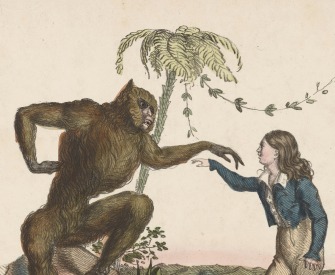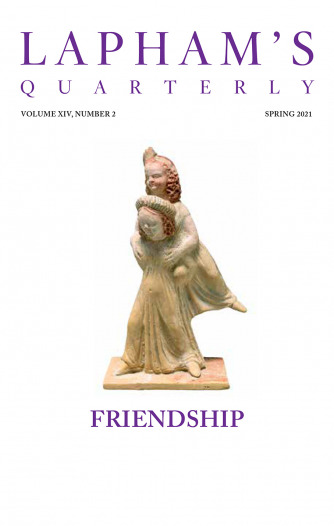Let us consider the relation of children to their brothers and sisters.
I do not know why we presuppose that it must be a loving one, since examples of brotherly and sisterly enmity among adults force themselves upon everyone’s experience, and since we so often know that this estrangement originated even during childhood or has always existed. But many grown-up people who today are tenderly attached to their brothers and sisters and stand by them have lived with them during childhood in almost uninterrupted hostility. The older child has ill-treated the younger, slandered it, and deprived it of its toys. The younger has been consumed by helpless fury against the elder, has envied it and feared it, or its first impulse toward liberty and first feelings of injustice have been directed against the oppressor. The parents say that the children do not agree and cannot find the reason for it. It is not difficult to see that the character even of a well-behaved child is not what we wish to find in a grown-up person. The child is absolutely egotistical; it feels its wants acutely and strives remorselessly to satisfy them, especially with its competitors, other children, and in the first instance with its brothers and sisters. For doing this we do not call the child wicked—we call it naughty. It is not responsible for its evil deeds either in our judgment or in the eyes of the penal law. And this is justifiably so; for we may expect that within this very period of life which we call childhood, altruistic impulses and morality will come to life in the little egotist.
Many persons, then, who love their brothers and sisters, and who would feel bereaved by their decease, have evil wishes toward them from earlier times in their unconscious wishes, which are capable of being realized in the dream. It is particularly interesting to observe little children up to three years old in their attitude toward their brothers and sisters. So far the child has been the only one; he is now informed that the stork has brought a new child. The younger surveys the arrival and then expresses his opinion decidedly: “The stork had better take it back again.”
I subscribe in all seriousness to the opinion that the child knows enough to calculate the disadvantage it has to expect on account of the newcomer. I know of a case where a girl, not yet three years old, tried to strangle a suckling in the cradle because its continued presence, she suspected, boded her no good. Children are capable of envy at this time of life in all its intensity and distinctness. Perhaps, the little brother or sister has really soon disappeared; the child has again drawn the entire affection of the household to itself, and then a new child is sent by the stork. Is it then unnatural for the favorite to wish that the new competitor may have the same fate as the earlier one in order that he may be treated as well as he was before during the interval? Of course this attitude of the child toward the younger infant is under normal circumstances a simple function of the difference of age. After a certain time the maternal instincts of the girl will be excited toward the helpless newborn child.
Feelings of enmity toward brothers and sisters must occur far more frequently during the age of childhood than is noted by the dull observation of adults.
In case of my own children, who followed one another rapidly, I missed the opportunity to make such observations. I am now retrieving it through my little nephew, whose complete domination was disturbed after fifteen months by the arrival of a female competitor. I hear, it is true, that the young man acts very chivalrously toward his little sister, that he kisses her hand and pets her; but in spite of this, I have convinced myself that, even before the completion of his second year, he is using his new facility in language to criticize this person who seems superfluous to him. Whenever the conversation turns upon her, he chimes in and cries angrily: “Too little, too little.” During the last few months, since the child has outgrown this unfavorable criticism, owing to its splendid development, he has found another way of justifying his insistence that she does not deserve so much attention. On all suitable occasions he reminds us, “She hasn’t any teeth.”
From The Interpretation of Dreams. In 1941, forty-two years after Freud offered this early theory on the nature of enmity between brothers and sisters, the American psychiatrist David M. Levy (who popularized the use of the Rorschach test) coined the phrase sibling rivalry in a paper for Psychological Review. Freud published his last major work, Moses and Monotheism, in 1938—the same year Germany annexed Austria. Forced into exile, Freud died the following year at the age of eighty-three in London.
Back to Issue



